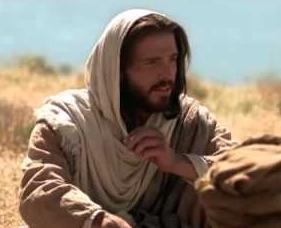The quality or value of a sermon is not only measured by the effect it has on the lives of those who hear it, but also in the example of the life of the one delivering it. The Gospel passages chosen for these Sundays before Lent are all from the 5th, 6th and 7th Chapters of Matthew, one hundred and eleven verses, comprising the substance of what is universally called "the sermon on the mount." This is the heart of the Gospel, the Good News of Jesus. This is Jesus the Teacher. This is the New Sinai, the NEW Commandment This is the summary of all that Jesus imagined for us.
 We have heard Jesus speak of the special attitudes of mind and heart that should identify His followers, what we call the "Beatitudes." We have listened as Jesus spells out our mission in the world: "You are the salt of the earth ...you are the light of the world!" We who follow Christ Jesus are called to add a special flavor to the quality of human life. We are to keep the lives and the loves of men and women from becoming stale, flat, tasteless. We are also called to bring the brightness of holiness and goodness to the world. We are called to overcome darkness, to drive out gloom and sadness and despair.
We have heard Jesus speak of the special attitudes of mind and heart that should identify His followers, what we call the "Beatitudes." We have listened as Jesus spells out our mission in the world: "You are the salt of the earth ...you are the light of the world!" We who follow Christ Jesus are called to add a special flavor to the quality of human life. We are to keep the lives and the loves of men and women from becoming stale, flat, tasteless. We are also called to bring the brightness of holiness and goodness to the world. We are called to overcome darkness, to drive out gloom and sadness and despair.
The Book of Leviticus puts it simply : "Be holy, for I the Lord am holy. You shall love your neighbor as yourself. I am the Lord." Jesus dramatizes that challenge even more forcefully: "Love your enemy, do good to those who hurt you." He asks us to be so totally immersed in the love of God as to love ourselves and others just as God loves us.
The ministry of Jesus flowed from his belief that living in love was living in God. He spent his life trying to share this belief with others and to allow that belief to transform their lives. Those who sat listening to his sermon heard his words. But more importantly, they saw him live those words to the fullest.
Every Christian community since then has sought to act as He acted, wanting to make the same Spirit that moved Jesus visible in society. Seeing, hearing, touching the hearts of others and speaking as he did are characteristics of all disciples.
It's as new as it is old: "Love God and love your neighbor." As it was all throughout Jesus' life, God identifies Himself with our neighbor. You can't have one without the other. How utterly simple. And yet how profoundly complex.
Loving God and loving neighbor requires the ability to be with people in their experiences of being vulnerable, broken, joyful, needy, searching and questioning. Being with people. Jesus was skilled at this and those around recognized his compassion, his ability to understand their situation, to identify with them. They recognized the presence of God within him.
These experiences are common to all disciples and they should be the means by which we can help others articulate more clearly and more meaningfully the reality of God's Spirit at work in their lives. But it is no easy task. We live in love. We live in God. We are the potter's vessel, easily broken and yet we are temples of the Spirit. We are called to be bread. We are blessed, broken and we are given. And we believe that in these lived experiences there is a sacred presence that gives it all meaning.
We can be satisfied with nothing less than the holiness of God. The Lord expects us to offer to one another the same kind of unconditional love that we continuously receive from God. He wants us to see both the image of God and our own image in every other person. That must include those who hurt me, those who slap me, those who insult me, those who are ungrateful, those who are thoughtless, and on and on.
We believe that everything and everyone is charged with God's presence. We are called to witness to this by our words and our actions. And this belief is at the heart of our faith, just as it was at the heart of Jesus' preaching, teaching and the way he lived his life.




